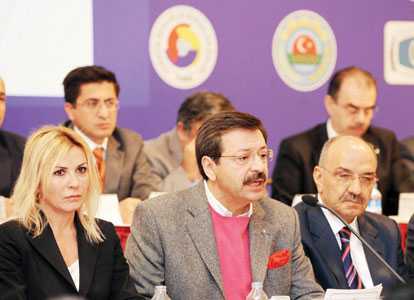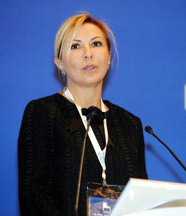Why Turkey belongs to transatlantic economy
By Bahadir Kaleagasi and Baris Ornarli, Turkish Industry and Business Association (TUSIAD) – 03/12/13 03:30 PM ET
At the President’s Export Council meeting on Tuesday, President Barack Obama reiterated the importance of achieving a U.S.–EU free trade agreement. He said, “Europe is our largest trading partner – the EU as a whole – and we think that we can expand that even further.”
The need to expand the economic partnership was conveyed to Secretary of State John Kerry during his trip to Turkey two weeks ago. Turkey’s Foreign Minister Ahmet Davutoglu said that the Transatlantic Trade and Investment Partnership “is of crucial significance for Turkey,” and that he and Secretary Kerry spoke about the free trade agreement that was announced by President Obama in his State of the Union address in February. “We believe that Turkey needs to play a significant role in that structure,” Foreign Minister Davutoglu said. Secretary Kerry confirmed that they had reached an understanding on this issue: “The Foreign Minister and I talked about ways in which we can grow our significant economic partnership. He mentioned… the Transatlantic Investment Trade Partnership. This is a huge opportunity for all of Europe, for all of us… And I know the Foreign Minister looks forward to working with me, and we actually arrived at an understanding of a couple of ways in which we intend to continue to do that.”
The exchange was under-reported. The U.S.–Turkey relationship involves multiple difficult and urgent regional issues. The civil war in Syria, stability in Iraq, Iran’s nuclear ambitions, Turkey’s relations with Israel all demand the attention of Turkish and American policy-makers. However, the opportunity that has presented itself with the Transatlantic Trade and Investment Partnership announcement should not be overlooked.
The U.S. and EU account for nearly half of world GDP and 30 percent of global trade. The U.S. Chamber of Commerce estimates that “a complete elimination of tariffs would increase combined U.S.–EU GDP by $180 billion in five years.” But there is room for more.
Turkey’s dynamic economy and integration with many European institutions make it a natural partner. Associating Turkey with the Transatlantic Trade and Investment Partnership would strengthen the transatlantic economy, enhance the policy convergence capability within the G20, and bolster prospects for Turkey’s accession to the European Union. Turkey is the 16th largest economy in the world and Europe’s sixth largest trading partner. It is a part of the European single market through a customs union since 1996, and remains in accession negotiations with the European Union for full membership. Over 55 percent of the European economic legislation is already transposed to the Turkish legal order. Thus, Turkey technically belongs to the European economy.
Moreover, the Obama administration has been keen on expanding the U.S.–Turkey economic relationship. In 2009, Turkey and the United States established the Framework for Strategic Economic and Commercial Cooperation (FSECC) – a cabinet-level structure charged with improving bilateral commercial and economic relations. The U.S.–Turkey Business Council was launched to invite private-sector input. Along with the Trade and Investment Framework Agreement, bilateral investment and tax treaties, and the Economic Partnership Commission the two governments have institutionalized bilateral mechanisms to enhance economic ties. The Turkish and American business world has been eagerly supporting the effort. This commitment has yielded results: In 2011, bilateral trade reached record levels, increasing by 35 percent to $20 billion. However, this is far below potential.
Turkey’s customs union membership precludes it from negotiating bilateral free trade agreements with those counties that do not already have an arrangement with the EU. The Transatlantic Trade and Investment Partnership announcement provides a turning point. While Turkey may not be able to have a seat at the table, an observer status would have a very positive effect. Washington should also pursue a parallel track with Ankara. Unless an arrangement is made, as a customs union member, Ankara must take on all the obligations associated with the free trade agreement without requiring the United States to extend any trade privileges to Turkey, which would further the trade imbalance. The EU, on the other hand, has already concluded a free trade agreement with NAFTA member Mexico and negotiations with Canada are ongoing. Involving Turkey in the emerging economic agreement between the United States and Europe would not only improve U.S. – Turkey economic and political ties, but would also strengthen the trilateral partnership. It would also generate significant political and geo-strategic energy for the strengthening of Western democracy. The economic and strategic value of this enterprise is self-evident and well worth the effort.
Kaleagasi is international coordinator and representative to the EU of the Turkish Industry and Business Association (TUSIAD). Ornarli is the Washington representative of the Turkish Industry and Business Association (TUSIAD).
via Why Turkey belongs to transatlantic economy – The Hill’s Congress Blog.




